From sustainability to scalability: How Futurpreneur’s Growth Accelerator program is helping young entrepreneurs rethink their supply chains and sales strategies
When you’re growing a business, you can feel like you’re juggling a dozen tasks at once.
The Futurpreneur Growth Accelerator program, presented by Spin Master, Lexus Canada, and supported by National Bank, is designed to help young entrepreneurs like you sharpen your skills and tackle key challenges, from supply chain management to sales strategies. This program is about more than just growth—it’s about building a smarter, more efficient business.
Whether you’re learning how to streamline your supply chain, create a scalable sales strategy, or build meaningful connections, the Growth Accelerator helps you move forward. Let’s look at how four young entrepreneurs have already used the program to refine their businesses and push their ideas further.
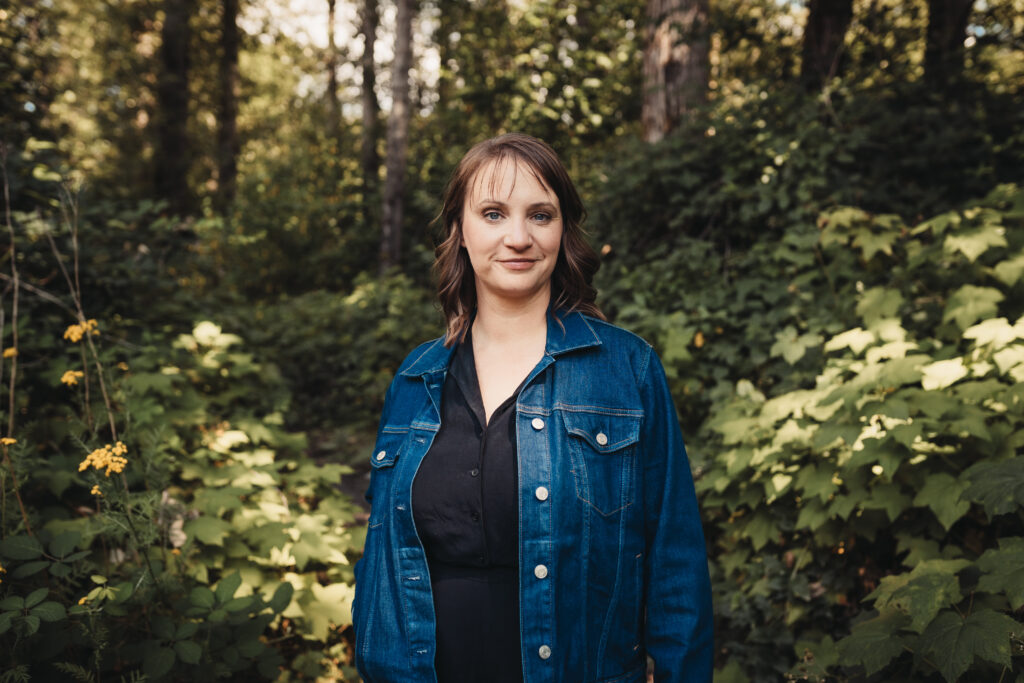
Maria Olson: Building a values-driven supply chain
Maria Olson, founder of Fox & Thistle Mercantile in Chilliwack, BC, knows that sustainability isn’t just a trend—it’s a necessity. “I’ve faced challenges with finding packaging that is affordable, Canadian-made, and available in small quantities,” Maria explains. “It’s not just about cost—it’s about ethics, carbon footprint and space.”
Through the Growth Accelerator, Maria realized the importance of forecasting and inventory management. She’s now making smarter decisions on purchasing and planning, and is focused on finding more sustainable packaging solutions that reflect her values.

Usman Uzzi Sultoni: Aligning growth with operational efficiency
Usman Uzzi Sultoni, founder of Adventure Outdoors in Abbotsford, BC, faced a different challenge: operational consistency. “The biggest issue was dealing with delays from manufacturers and having too much stock of some products while running out of others,” Usman says. “That affects customer experience and cash flow.”
Through the Growth Accelerator, Usman learned to streamline his operations by focusing on supplier relationships, regular inventory counts and centralizing his systems. He’s now well on his way to a more organized and efficient business.
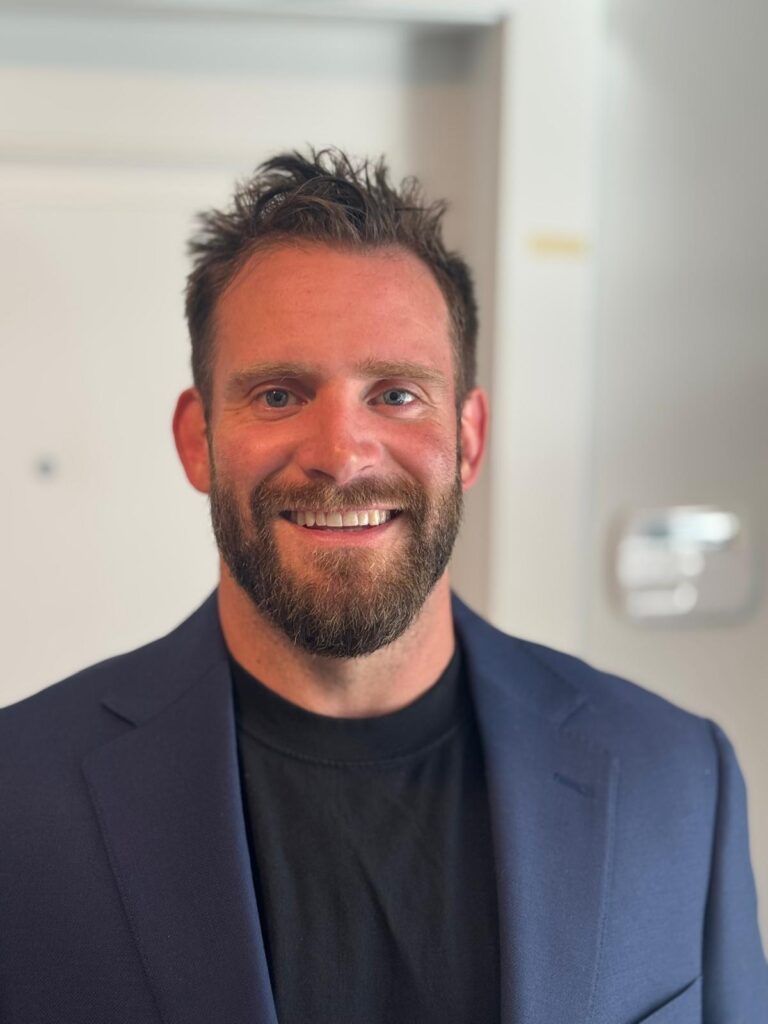
Grant Guenkel: Turning events into opportunities
Grant Guenkel, who runs Mister G’s Cookhouse Corp. in Southampton, ON, turned his mobile BBQ catering business into a year-round operation. “I realized I needed to think beyond the product. It’s about creating an experience,” he says. Grant has now started partnering with local businesses for joint events to build a stronger presence, even during the off-season.
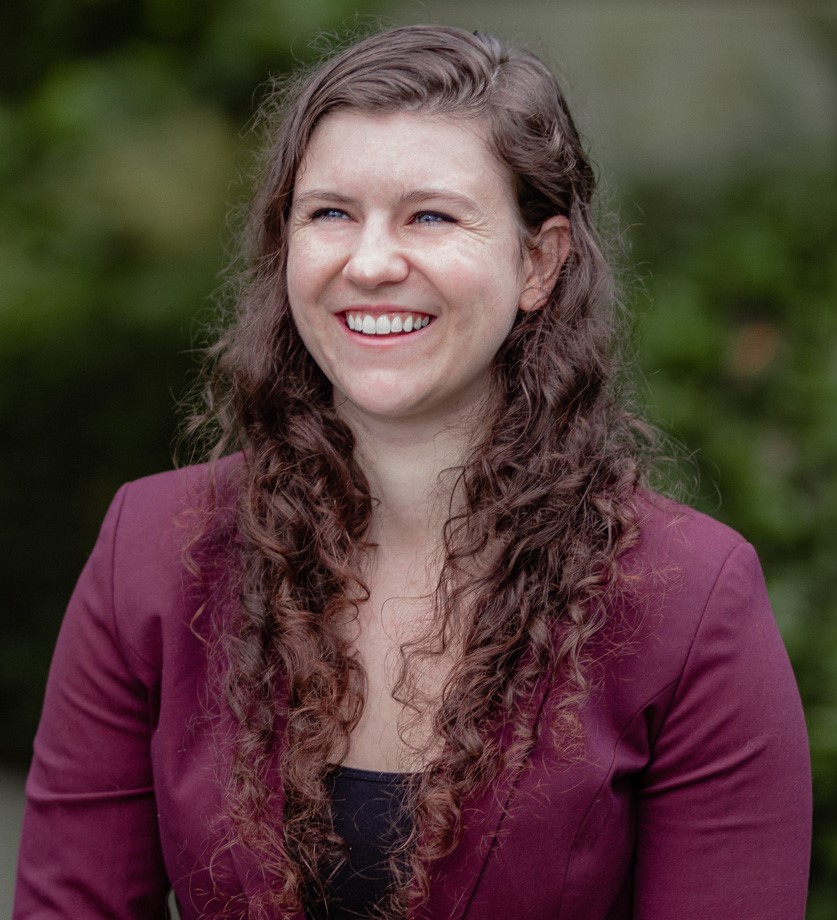
Christina Morrow: From organic growth to strategic selling
Christina Morrow, founder of Wicked Rose in Vancouver, BC, used to rely on organic growth through Instagram. But the Growth Accelerator Sales workshop showed her how to make the leap to wholesale. “Before, things felt scattered and not intentional,” Christina explains. With new strategies for outreach, prospecting, and lead generation, Christina is now building a more structured sales process.

2024 winners: DOUBL
The 2024 Growth Accelerator pitch competition saw DOUBL, founded by Jessica Bosman and Bryn Davis Williams from British Columbia, win the top prize. Their innovative approach to sustainable fashion, using AI to create made-to-measure bras, exemplifies the entrepreneurial spirit the Growth Accelerator nurtures.
Their success is a testament to how the Growth Accelerator program helps entrepreneurs turn their innovative ideas into successful businesses.
Ready to take your business to the next level?
The Growth Accelerator is your opportunity to gain the tools, mentorship, and resources to grow your business. Whether you’re refining your supply chain or scaling your sales, this program is the key to moving forward.
If you’re interested in learning more about the program, check out Futurpreneur’s Growth Accelerator page.
If you’re ready to take the next step in your entrepreneurial journey, learn more about Futurpreneur’s loan with mentorship.
Earth Day, every day: How shopping local supports sustainability and entrepreneurs in Canada
Every day is a great day to make eco-conscious choices. For young entrepreneurs, it’s an opportunity to grow their businesses sustainably, contributing to a healthier planet while also helping their communities. At Futurpreneur, we’re excited to highlight a few of the many young entrepreneurs who are helping shape a sustainable future through their innovative products. By supporting local businesses, we’re not just investing in entrepreneurs’ dreams—we’re also making a positive impact on the environment.
Sustainable shopping trends
According to recent data from Agriculture and Agri-Food Canada, half of Canadian consumers say they’re buying more sustainable products than five years ago. Eight in 10 Canadians value a sustainable lifestyle, and 65% feel they have a moral obligation to use environmentally friendly products. As we face the realities of climate change, 6 in 10 Canadians report that it’s their top concern.
Supporting sustainable products is not just good for the planet—it’s good business. The Canadian sustainable market is valued at approximately $25 billion, according to Statistics Canada. This shows that sustainability is more than a trend—it’s a significant industry with immense potential for growth.
Here are a few Futurpreneur-supported businesses from the Futurpreneur Marketplace offering local, sustainable options for eco-conscious shoppers:

Gleam & Glow
Product: Skin cream
Futurpreneur: Camilia Destteffano
Website: gleamandglow.ca
Gleam & Glow is a skincare brand focused on natural, plant-based ingredients that are organic, cruelty-free, and packaged in recyclable materials. This brand is not just about skincare—it’s about a holistic approach to wellness, encouraging healthy thoughts and emotions along with healthy skin.

Pinky Swear & Co.
Product: Scented candles
Futurpreneur: Alexander Farrow
Website: pinkyswearandco.com
Pinky Swear & Co. creates clean-burning, long-lasting candles from sustainably sourced coconut soy wax. Their products are phthalate- and paraben-free, and they collaborate with Canadian markets and charities to give back to their communities.

Cooks Who Feed
Product: Chef-designed aprons
Futurpreneur: Seema Sanghavi
Website: cookswhofeed.com
Cooks Who Feed is on a mission to fight food insecurity with fair trade, organic aprons. Made by marginalized women in India, every purchase helps provide meals to those in need. This business is all about creating a sustainable impact through small actions.

Origine en Vrac
Service: Sustainable grocery store
Futurpreneur: Jean-Philippe Miville-Deschênes
Website: origine-vrac.ca
Origine en Vrac is a zero-waste grocery store in Quebec, focusing on reducing single-use packaging. Customers bring their own containers to fill with organic, fair trade, vegan, and eco-friendly products, making it easy to shop sustainably.
At Futurpreneur, we are proud to support young entrepreneurs who are committed to making the world a better place through sustainable business practices. We’re here to help them turn their eco-conscious ideas into thriving businesses.
Interested in learning more?
Find out how Futurpreneur’s loan with mentorship can help you start and grow your sustainable business by visiting Futurpreneur’s startup resources.
Are you a Futurpreneur-supported entrepreneur?
Would you like to feature your products or services in the Futurpreneur Marketplace? You can fill out a short application here.
Looking to shop sustainably?
Check out the Futurpreneur Marketplace to discover more eco-friendly products and services from Canadian entrepreneurs.
Buying strength, building success: Kirsten Burns’ path to business ownership with #OwnersWanted
When Kirsten Burns took the leap from manager to owner of Tri Fit Training in Airdrie, Alberta, she stepped into a new phase of her career with confidence and purpose—supported in part by Futurpreneur’s #OwnersWanted Program.
Tri Fit is a performance-focused facility offering strength and conditioning, nutrition services and massage therapy. After managing the business for five years, Kirsten officially purchased it in October 2024. For her, it wasn’t a dream years in the making—but rather the right opportunity at the right time.
From opportunity to ownership
“Business ownership wasn’t on my radar,” says Kirsten. “But after years of helping grow the business on the management side, I saw a chance to make a bigger impact.”
That chance came when the former owners offered her the opportunity to take over. Kirsten was already embedded in the business and had a deep understanding of its culture, clients and potential.
Why buying a business made sense
Rather than building from scratch, Kirsten saw the value in buying a business with an existing customer base, operations and strong community presence. It wasn’t without challenges—especially when it came to understanding finances and navigating the legal side of a share purchase.
But she wasn’t alone. From the early stages of her journey, Kirsten connected with Futurpreneur through a referral from RBC’s small business team.
Tools for confident ownership
Futurpreneur supported Kirsten with startup loan financing, a mentor and access to practical tools and resources. These supports helped her fine-tune her business plan, build scalable systems and overcome early uncertainty around revenue.
Mentorship proved especially valuable. Kirsten’s mentor helped her strengthen her social media strategy and refine how she markets within her local community.
“Identifying my strengths and weaknesses early on helped drive our conversations,” she says. “My mentor’s background in marketing helped me build confidence in areas that didn’t come naturally.”
Listen to Kirsten’s top success strategies for buying a business in this audio clip.
Alberta challenges and community strengths
Running a business in Alberta brings unique considerations—from market volatility linked to the oil and gas sector to challenges in attracting top talent. But it also presents opportunities.
“There’s a strong entrepreneurial spirit here,” says Kirsten. “And Airdrie, while growing fast, still has a small-town feel. The local support for small businesses is incredible.”
Her advice for navigating these complexities? Stay informed and surround yourself with experienced professionals who can help guide your decisions.
Lessons from experience
Kirsten’s journey hasn’t been without hurdles. Two key ones were assessing the financial health of the business and navigating the legal complexity of a share purchase.
Thankfully, she leaned on her network of fellow entrepreneurs, as well as a skilled accountant and lawyer, to feel confident she was making the right move.
She also emphasizes the importance of having a clear transition plan. Working collaboratively with the former owners helped retain staff and maintain trust with clients.
Common pitfalls to avoid
From her experience and conversations with mentors and peers, Kirsten highlights several common mistakes young entrepreneurs should avoid:
- Underestimating the time commitment required to run a business.
- Overlooking the importance of a smooth transition with staff and clients.
- Ignoring the need to manage cash flow, especially in the early days.
A new chapter, professionally and personally
Owning Tri Fit has given Kirsten more autonomy over her career but has also come with its demands. Wearing many hats has helped her grow in areas like leadership, problem-solving and decision-making.
“Being a business owner means rapid development in so many areas,” she says. “It’s been challenging—but incredibly rewarding.”
Thinking of buying a business? Here’s where to start
Kirsten encourages aspiring entrepreneurs to explore Futurpreneur’s #OwnersWanted program for insights, tools and real-world strategies to make business ownership a reality.
You can also learn more about Futurpreneur’s Startup Program, which offers startup loan financing with mentorship and resources—up to $75,000—here.
Want to learn more? Explore how #OwnersWanted helps young entrepreneurs on their journeys to purchase existing businesses in Canada.
Thank you to the Government of Alberta for supporting this initiative.

Celebrating four years of supporting Black entrepreneurs
In March 2021, the Futurpreneur Black Entrepreneur Startup Program (BESP), funded by RBC, launched with a clear mission: to provide Black entrepreneurs across Canada with access to the capital, mentorship, resources and networks they need to succeed.
Since then, the impact speaks for itself:
- $20.5 million in loan financing and follow-on loan financing disbursed;
- 511 Black-owned businesses supported; and
- 50% of supported Black-owned businesses are women-led.
These numbers tell part of the story, but for me, BESP’s impact is personal.
Why this work matters to me
Like many Black professionals, I spent years in corporate spaces as the only Black woman in the room. I mastered code-switching, learned how to shape-shift to fit in, but the higher I climbed, the more disconnected I felt from my purpose.
In 2017, I walked away from corporate and started consulting. A lot of my time went to Black non-profits and grassroots organizations. I wanted to contribute to a community that was too often overlooked and underfunded.
Then BESP found me.
A friend sent me a job posting at Futurpreneur in 2022. I applied, thinking, “Why not?” But the more I engaged with the organization, the more I saw something rare: real commitment to diversity, not just in words but in action. A Head of DEI at the senior leadership level? In a climate where companies are quietly backing away from diversity efforts, that means something.
When the opportunity to lead BESP came, I took another leap. And it changed everything.
A program that’s reshaping the economic landscape
Let’s be real, Black entrepreneurs face systemic barriers that make success harder. Limited access to capital, a lack of mentorship, and fewer industry connections make it tougher to scale a business. According to BDC, 84% of Black entrepreneurs are the first in their immediate or extended family to own a business, a rate higher than their non-Black peers.1 Despite these challenges, community support is strong, with 95% of Black business owners having previously supported another Black-owned business.
That’s why BESP isn’t just about financing; it’s about shifting the landscape entirely.
We’re not just investing in Black businesses. We’re investing in Black entrepreneurs—their ideas, their resilience, their ability to innovate and lead.
Take David Owasi, for example. He built Outreach Genius, an AI-driven marketing company in Winnipeg. In just 18 months, his team expanded tenfold, proving that Black tech founders are leading innovation in unexpected places.
Or Jayrell Diggs, who turned his frustration with juggling laundry and school into SudDrop, a Halifax-based fast-growing laundry service that’s now expanding beyond Nova Scotia. After winning a $10,000 Rock My Business Start-Up Award prize, he’s using his prize money to scale even further.
Beyond loans: The power of mentorship & community
Money is one thing. But access to mentorship, resources and networks? That’s where the real magic happens.
One of the most powerful aspects of BESP is that we’re not just handing out loans; we’re creating real connections. Having a mentor who understands your reality, who’s navigated the same barriers, changes everything. Because when you see someone who looks like you win, you realize you can win too.
Through financial literacy workshops, business planning support, and peer-to-peer connections, we’re making sure Black entrepreneurs don’t just launch their businesses; they successfully sustain and scale them.
Looking ahead: Expanding our reach
None of this would be possible without RBC. As BESP’s founding partner and biggest champion, RBC has been instrumental in turning a vision into reality. Their commitment to Black entrepreneurship isn’t just a pledge; it’s a game-changer. Thanks to their support, and additional loan financing from BDC, we’re reaching more Black entrepreneurs and helping them turn bold ideas into thriving businesses.
That means:
- Expanding beyond major urban centers: because Black entrepreneurs exist everywhere, not just in big cities;
- Strengthening post-disbursement support: with more marketing and financial workshops so that businesses can thrive after accessing their loans; and
- Building more networking opportunities: because sometimes, the best business advice comes from another entrepreneur who’s been in your shoes.
The work doesn’t stop here. We’re just getting started.
This is just the beginning.
We’ve seen what happens when Black entrepreneurs get the right support: businesses grow, industries shift, new opportunities open up and economies flourish.
BESP is here to make sure that continues. Through mentorship, community, and the right resources, we’re backing Black entrepreneurs who are ready to build.
If you’re serious about taking your business to the next level, we’re here. Pull up. Let’s make it happen.
Startup your future, today! Learn more about Futurpreneur’s Black Entrepreneur Startup Program, click here.
Tamara Chanoine is Futurpreneur’s Director, Black Entrepreneur Startup Program. She is a bilingual marketing professional with a dynamic background of more than 15 years of experience, working with national and global brands across a mix of exciting fields like automotive, retail, government, non-profit organizations and creative agencies.
This path led her to Futurpreneur’s Black Entrepreneur Startup Program (BESP), leading a team of dedicated individuals who are committed to offering continuous support to Black entrepreneurs, helping them start up and expand their businesses.
Buying a business, building a future: How Lana Larson found success through #OwnersWanted
When Lana Larson was ready to take the next step in her career by purchasing an existing business, Futurpreneur’s #OwnersWanted program provided her with the support she needed to make that goal a reality.
Passion, resilience and a commitment to quality healthcare—these are the driving forces behind Lana’s journey from registered nurse to business owner. With over a decade of experience in pediatric nursing, she recently took a bold step by acquiring Aim Nursing Services Inc., a private nursing company specializing in pediatric care in Edmonton.
For Lana, entrepreneurship isn’t just about running a business—it’s about creating meaningful change in her community while balancing life as a mother of three.
From nurse to business owner: A natural progression
Lana’s path into healthcare started with a diploma in physical and occupational therapy assistance from MacEwan University, followed by a Bachelor of Science in nursing from the University of Alberta in 2015. She built a career in pediatric medicine at the Stollery Children’s Hospital, trauma-informed nursing at the Edmonton Young Offender Centre, and homecare services.
Business ownership was always in the back of her mind. She had previously owned a dance studio at the start of her nursing career, so when Wendy King, founder of Aim Nursing Services, decided to retire, Lana saw an opportunity. She knew she could continue Wendy’s legacy while bringing new energy to the business.
Balancing business, family and passion
As a mother of three, flexibility was key in Lana’s decision to take over Aim Nursing Services. A quote she once read resonated deeply:
“If your business or job allows you to pick up your kids from school and attend all their events, you’re already successful,” says Lana.
This realization gave her the final push to embrace business ownership, creating a career that supports both her passion for healthcare and her commitment to family.
Want to hear Lana’s top success strategies for buying a business? Listen to her insights and practical advice in this short audio clip.
A new path to business ownership
Many young entrepreneurs assume that starting a business from scratch is the only way forward. But buying an existing business can be a smart and rewarding path to entrepreneurship.
In fact, 76% of Canadian business owners plan to exit their business in the next decade and 54% say their biggest challenge is finding the right buyer. With the support of Futurpreneur’s #OwnersWanted program, more young entrepreneurs like Lana can take advantage of these opportunities.
Overcoming challenges with mentorship and startup loan financing
One of the biggest hurdles Lana faced was securing startup loan financing. Traditional banks required proof of ownership before approving a loan, yet she couldn’t purchase the business without one—a frustrating cycle.
That’s when she found Futurpreneur’s #OwnersWanted program through a Google search. The program provided her the knowledge and confidence she needed to acquire Aim Nursing Services—a game-changing opportunity. Lana turned to Futurpreneur’s Core Startup Program to secure a loan to make the purchase a reality.
Beyond loan financing, mentorship has played a crucial role in her success. Having a mentor outside the healthcare industry has given her a fresh perspective on running a business, helping her move from a nurse’s mindset to a strategic business approach.
Lessons learned in entrepreneurship
Lana’s journey has been filled with valuable insights. Here’s what she’s learned:
- Do your due diligence. Understand why the seller is selling and ensure the business aligns with your goals.
- Get financial clarity. Work with an accountant and create a solid business plan before committing.
- Be patient with yourself. Running a business is a learning process—embrace the challenges as part of the journey.
- Invest in mentorship. Having an experienced advisor can provide guidance and support in unexpected ways.
The impact of business ownership
Since taking over Aim Nursing Services, Lana’s life has changed profoundly. She now has the flexibility to drive her kids to school, volunteer in their classrooms, and take time for herself when needed.
Professionally, stepping into a leadership role has been a major adjustment, but she’s embraced the challenge. The learning curve is steep, but she reminds herself daily:
“I’m constantly growing into my role as ‘the boss’—and that’s okay.”
Thinking of buying a business? Here’s where to start
If you’re an aspiring entrepreneur considering buying an existing business, Futurpreneur’s #OwnersWanted program can help you build your knowledge and confidence to make your business ownership goals a reality.
You can also learn more about Futurpreneur’s startup loan with mentorship and resources, up to $75,000, here.
Want to learn more? Explore how #OwnersWanted helps young entrepreneurs purchase existing businesses in Canada. Click here
Thank you to the Government of Alberta for supporting this initiative.

Changing lives, one coat at a time: Futurpreneur Jordan Britton’s journey from idea to impact
Entrepreneurship is a journey—exciting, unpredictable, and filled with both challenges and opportunities. For Alberta-based entrepreneur Jordan Britton, founder of Warm Social Co., that journey has been shaped by his Indigenous identity and a deep commitment to making a difference.
What started as a simple idea—ensuring people have proper winter coats—has grown into a mission-driven business making a community impact. Jordan’s story is a testament to the fact that entrepreneurship isn’t just about making money; it’s about creating real, lasting change.
Embracing identity and purpose
For Jordan, launching a business has been as much about self-discovery as it has been about entrepreneurship.
“Being Indigenous is a complex thing… but meeting strong Indigenous role models really helped me embrace my identity,” he shares.
His heritage has been a key element in navigating the challenges of business ownership.
But Warm Social Co. is about more than just coats—it’s a movement. Jordan believes business should be a force for good, and his company proves that success and social impact can go hand in hand. His mission is simple: no one in Canada should have to endure harsh winters without a proper coat. That’s why Warm Social Co. follows a one-for-one model, donating one equal article of outerwear for every single purchase.
Entrepreneurship with empathy
Before launching Warm Social Co., Jordan worked as a counselor for seven years. He saw families struggling to afford warm clothing—an issue that was both urgent and solvable. That’s when the idea clicked.
“We want to make sure that every single Canadian who needs a winter coat gets one,” Jordan explains.
This deep sense of empathy—honed through years of working with vulnerable communities—became the foundation of his business. His story highlights a key lesson: empathy drives innovation. The best business ideas don’t just fill a gap in the market—they solve real problems and improve lives.
Watch Jordan’s story
See how Jordan turned a simple idea into a thriving, impact-driven business.
Turning an idea into a sustainable business is no small feat, but Futurpreneur’s Indigenous Entrepreneur Startup Program was a game-changer for Jordan. Over the past two years, the program has provided him with essential funding, mentorship, and resources to help grow Warm Social Co.
“I would not have seen the growth I’ve had over the last two years without Futurpreneur’s support,” he says.
Beyond financial support, Jordan credits his mentors and the connections he made through Futurpreneur as some of the most valuable aspects of the program.
“Amazing people at Futurpreneur. Would work with them again,” he adds.
For Jordan, having a supportive and passionate entrepreneurial community has made all the difference. And while he’s proud of how far his business has come, he’s even more excited about what’s ahead.
Key takeaways from Jordan’s entrepreneurial journey
Jordan’s experience offers valuable insights for any aspiring entrepreneur:
- Embrace your identity – Your background, culture and experiences can shape your business in powerful ways.
- Entrepreneurship is about impact – A business isn’t just about profit; it’s about making meaningful change.
- Empathy drives innovation – The best business ideas solve real-world problems.
- Resilience is key – Overcoming challenges and staying committed to your vision is essential.
- Mentorship matters – Learning from experienced entrepreneurs can be a game-changer.
- Funding fuels growth – A great idea needs financial support to scale—seek out funding opportunities.
- Surround yourself with the right people – A strong support network makes all the difference.
- Stay true to your mission – Let your purpose guide every business decision.
Your turn: Start your entrepreneurial journey
Are you an Indigenous entrepreneur ready to turn your idea into a thriving business? Futurpreneur’s Indigenous Entrepreneur Startup Program provides loan financing, mentorship and support to help you start, buy or grow your small business. Apply today and take the first step toward making your vision a reality.
Turning passion into purpose: Three entrepreneurship lessons from Richa Gupta and Kailey Gilchrist
Richa Gupta, Founder of Good Food for Good, and Kailey Gilchrist, Founder of NONA Vegan, are on a mission: transforming their passion for food into purpose-driven, successful businesses.
Richa launched Good Food for Good, a B Corp-certified company to offer organic condiments and sauces with no added sugar, dairy, wheat or preservatives.
Kailey turned her love for plant-based food into NONA Vegan, a thriving business producing a variety of lactose-free, gluten-free vegan sauces.
Two entrepreneurial stories that began 10 years ago. Two inspiring women entrepreneurs with practical advice for aspiring business owners.
Richa and Kailey were panelists in a virtual session co-hosted by Futurpreneur and Business Development Bank of Canada (BDC) during StrikeUP 2025, Canada’s leading digital conference for women entrepreneurs.
Here are three essential lessons from their entrepreneurial journeys:
1. Know your industry inside and out
Both Good Food for Good and NONA Vegan were born with the same purpose: making good food and using it to create a positive impact. They also aimed to fill a market gap.
Richa was looking for healthy, no-sugar, no-preservative sauces to feed her four-year-old daughter. “I was working in the food industry, and the more I learned, the more I questioned what I was feeding my child. I was putting ketchup on her potatoes while taking away her cookie, without realizing that a teaspoon of ketchup contains the same amount of sugar as one cookie.”
Around the same time, Kailey was working in a health food store and searching for tasty, healthy vegan sauces. “Nobody was making a bottled vegan Alfredo sauce or a cashew cheese sauce back then. I had the knowledge and the passion, and after my mom passed away, I needed something to channel my grief. Cooking was my way of staying connected to her.”
While industry experience isn’t a requirement for starting a business, both entrepreneurs emphasize the importance of understanding the market before launching.
“Know everything possible about your industry: the data, the numbers, the product categories. No matter what industry you enter, deep dive into it—understand how it works, the supply chains, the key players. This is all crucial,” explains Richa.
This knowledge will be invaluable when sourcing ingredients or building reliable supply chains. “I’ve worked with seven different co-packers in the past 10 years,” says Kailey. “Mastering your industry helps you pivot quickly when needed.”
2. Let your purpose and values guide your business decisions
Both Kailey and Richa built purpose-driven businesses. Through conscious sourcing, responsible production and a commitment to quality, their companies prove that success isn’t just about profit—it’s also about making a positive impact.
“I’ve always been passionate about inclusivity. At NONA Vegan, we say, ‘Tutti a tavola,’ which means ‘Everyone to the table.’ This applies across all aspects of life—who you are, who you love and what you eat. Everyone should feel included,” says Kailey.
The way a business communicates shapes how customers perceive the brand and builds trust. “I always ask my team to pay attention to the words we use. Instead of saying, ‘This is crazy,’ or ‘I felt paralyzed,’ we say, ‘This is wild,’ or ‘I felt frozen.’ Ultimately, it’s about living your brand values,” Kailey explains.
At Good Food for Good, every purchase helps someone in need. “We’ve donated over two million meals through partnerships with food banks and nonprofit organizations,” says Richa. “Our values drive our decisions. It’s about good food—and food for good. The food I create for others is the food I’d serve my family.”
3. Reach out for help—you don’t have to do it alone
Both entrepreneurs credit the support they received early on from Futurpreneur and BDC, along with other entrepreneurship-focused organizations, as key to their success. From Futurpreneur’s business plan writer and BDC’s cash flow forecast to loan financing, networking and mentorship, ecosystem support is essential.
“Put aside that first-time founder ego. Ask for help,” says Kailey, encouraging entrepreneurs to lean into their communities. “Go to events—you never know who you’ll meet. Entrepreneurship can be lonely, but knowing others are going through the same challenges is reassuring. There’s so much to learn from each other’s successes and struggles.”
For young, first-time entrepreneurs, it’s crucial to seek advisors with proven track records, adds Richa. “There’s a great network of support out there. The financing, planning, connections and visibility are invaluable. I have a business degree, but I had never run a business before. The advice and support I received over the years were priceless.”
Learn more about Futurpreneur’s loan financing with mentorship and resources for young entrepreneurs, here.
You can learn more about how BDC supports women entrepreneurs, here.
StrikeUP 2025 registrants can re-watch content from the conference, here.
This article is presented in partnership with:
Business Development Bank of Canada (BDC)
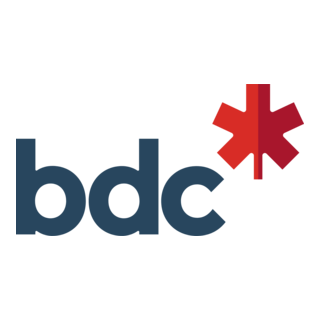
Bringing plant-based protein to Canadian shelves: A Q&A with Futurpreneur Li-an Delos Reyes
This story is presented as part of My Canadian Startup, a newcomer entrepreneur initiative presented by Futurpreneur and TD through its corporate citizenship platform, the TD Ready Commitment.
When Li-an Delos Reyes moved to Petty Harbour, Newfoundland from the Philippines in 2018, she was on the hunt for a product she needed but couldn’t find—breastfeeding coffee, a decaf drink made for nursing mothers. Instead of giving up, she created her own and quickly found a market for it at local farmers’ markets.
Her entrepreneurial spirit led her to another gap in the market—shelf-stable, plant-based protein. Once again, she couldn’t find what she was looking for, so she decided to make it herself. This time, instead of relying on investors, she turned to Futurpreneur to help launch Brother Sprout, a business that has grown beyond her wildest dreams.
What inspired you to start your own business in Canada?
I’ve struggled with digestive issues for a long time, and my health was declining. People kept suggesting I try a plant-based diet, so I did—and within a month, I thought, why didn’t I try this earlier?
But in Newfoundland, I noticed most people who went plant-based relied on tofu or Beyond Burgers. I kept wondering, why aren’t there more shelf-stable, plant-based protein products? Since I couldn’t find what I wanted, I decided to make it myself and see if people would buy it.
I started researching how to create a long-lasting meat alternative, but as a newcomer, I was still establishing myself. Financially, I wasn’t in a position to launch a business from scratch without support.
What are some of your biggest wins since launching your business?
The first big milestone was rebranding and redesigning my product with professional packaging. With the help of my Futurpreneur loan, I bought my first round of inventory, and being able to sell it successfully was a huge moment for me.
The second milestone was landing a national retail partnership with Loblaws. Seeing something that started as a small farmers’ market product now available nationwide is overwhelming in the best way. I’m incredibly grateful.
How did Futurpreneur support your entrepreneurial journey?
I participated in Futurpreneur’s Rock My Business workshop, where I learned about cash flow planning and accessed free business resources. The financing I received covered critical startup costs—things that often aren’t funded elsewhere, like marketing and launching.
One of the biggest game-changers was my Futurpreneur mentor, who had deep experience in the plant-based industry. They helped me refine my branding and messaging so that it truly resonated with my target market. The Futurpreneur loan also allowed me to turn my small farmers’ market business into a professional product now available across Canada.
Are you a newcomer entrepreneur looking to start, buy or grow a business in Canada? Learn more about My Canadian Startup, here.
What advice would you offer to newcomer entrepreneurs starting their businesses in Canada?
Find the right mentors. You need people who understand the market and can guide you. Futurpreneur was always there when I had questions—they would follow up with me instead of the other way around, which made me feel truly supported.
Do your market research. Know your customers—who they are, what they want, and how to convert them into buyers. I started by chatting with people at farmers’ markets, asking why they bought my product and what they liked about it. That simple approach helped me see an even bigger market opportunity—like parents looking for high-fiber options for their kids.
What’s the most important thing you’ve learned about yourself as an entrepreneur?
I’ve learned that if I never tried, never failed, and never made mistakes, I wouldn’t have discovered my ability to create something out of nothing.
Starting a business as a newcomer was challenging, but every obstacle taught me something valuable. This journey has shown me that resilience, adaptability, and trusting in my ability to keep moving forward are key to long-term success.
Want to start your own business in Canada? Discover the free resources, mentorship, and support available through My Canadian Startup!
Presented by TD Bank Group
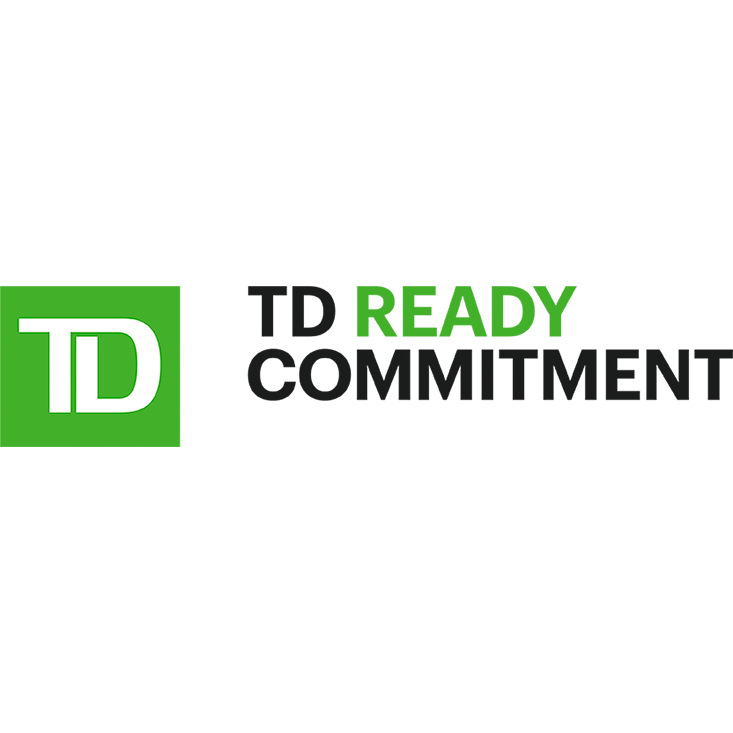
Bringing vibrant African-inspired decor to Canada: A Q&A with Futurpreneur Prima Mabonzo
This story is presented as part of My Canadian Startup, a newcomer entrepreneur initiative presented by Futurpreneur and TD through its corporate citizenship platform, the TD Ready Commitment.
When Prima Mabonzo moved to Canada, she quickly realized something was missing from the interiors around her—vibrancy and colour. Inspired by her African heritage, she launched Kisina Déco in 2018 to bring bold, African-inspired home decor to Canadian households.
Building a business as a newcomer comes with challenges, from understanding regulations to securing financing. Prima shares her entrepreneurial journey and advice for fellow newcomers looking to turn their business ideas into reality.
What inspired you to start your own small business in Canada?
Where I’m from in Africa, clothing and home decor are vibrant and full of colour. When I moved to Canada, I noticed a lack of colour around me—homes felt very similar. Over time, I started imagining a business that could bring African-inspired decorative accessories to Canadian homes, blending traditional craftsmanship with modern design.
What challenges did you face when launching your business?
The first challenge was understanding the Canadian regulatory system and market. Learning about customer preferences was crucial because a business’s success depends on identifying market gaps and positioning itself effectively.
The biggest challenge, however, was securing financing. My employment status made it difficult to access funding—no one wanted to finance me. Futurpreneur was the only organization willing to support me, and that made all the difference.
Looking to launch your own business in Canada? Explore free workshops, resources and support offered through My Canadian Startup, presented by Futurpreneur and TD Bank Group.
What pitfalls would you advise new entrepreneurs to avoid?
Focusing too much on the product and underestimating the importance of marketing and communication. Where I come from, businesses grow mainly through word-of-mouth. That works in Canada too, but you can’t rely on it alone—you need a strong online presence and marketing strategy to reach a wider audience.
How did Futurpreneur’s loan with mentorship impact your business success?
It was essential. I had my business plan, but I needed equipment and raw materials to get started. The mentorship program helped me make smart decisions at the right time.
When you’re starting out, it’s easy to want to do everything at once, but that can be overwhelming. My mentor helped me focus on priorities, guiding me toward building a strong foundation for my business.
What’s the most important lesson you’ve learned about doing business in Canada?
The first challenge is understanding Canadian culture and customer expectations. As newcomers, we bring our own cultural perspectives, but business approaches aren’t always the same here. Taking the time to get to know your customers and adapt to the local market is key.
The second lesson is the importance of building a strong network. When you move to a new country, you don’t have the same support system you had back home. It’s important to rebuild that structure by networking and surrounding yourself with people who understand your vision and are willing to support you.
For me, I found a great community through Business Professional Women (BPW) Montreal, a businesswomen’s network where I volunteered. I always encourage entrepreneurs to look beyond incubators and get involved in their communities. Giving back can open doors in unexpected ways.
What strategies would you recommend to newcomer entrepreneurs launching a business?
Build your network early. Volunteering or working in Canada before launching your business helps you understand how things work here. Seeing the business world through a Canadian lens makes everything easier.
Learn from others. Observe what works for successful businesses and adapt those insights to your own venture.
Don’t go it alone. Seeking mentorship, connecting with peers, and engaging with your community will help you succeed.
Want to access startup loan financing with mentorship and tailored resources for Black entrepreneurs? Learn more about Futurpreneur’s Black Entrepreneur Startup Program (BESP).
Presented by the TD Bank Group

The Power of Community: Stories from Black entrepreneurs in Canada
When you think about building a business, it’s easy to fall into the “hustle hard” mindset. But for many Black entrepreneurs, success is less about the grind and more about the power of community. Across Canada, young Black business owners are making it happen through networks, mentorship, and collective support that fuel their drive.
For Black History Month, we caught up with three inspiring entrepreneurs from Futurpreneur’s Black Entrepreneur Startup Program (BESP). Their stories highlight how the program and the broader community helped them overcome obstacles and thrive.
Alain Barcimin: Nurturing connections through Villa 961
Co-Founder, Villa 961 (Quebec City, QC)
Alain Barcimin co-founded Villa 961, a Mediterranean restaurant in Quebec City, with Hussein Ezzeddine to create a space where people can gather and share culinary experiences.
“Futurpreneur gave me the tools I needed to bring my ideas to life,” says Alain. “From Rodrique Lomomba’s (Black Entrepreneur Startup Program Specialist) advice to Karoline Yelle (Business Development Manager), who helped me structure my business plan, I felt supported every step of the way. Even Tamara Chanoine, Director of the Black Entrepreneur Startup Program, visited my restaurant—it was an incredible show of support.”
Alain explains how the guidance went beyond financial support. “They helped me analyze my business, avoid mistakes, and connected me with a mentor who equipped me with essential tools.”
His restaurant also became a place of inspiration. “People often visit not just to eat but to ask about starting their own businesses. I always tell them about Futurpreneur because I’ve seen firsthand how they can help.”
His advice: “You don’t need to have everything figured out to begin. Take that first small step, and you’ll go places you never imagined.”
Mary-Noah Ndateramye: Building a village for success
Founder, Garderie Les Petits Yogis (Beaumont, AB)
For Mary-Noah Ndateramye, opening her daycare wasn’t easy. Facing multiple loan rejections from banks, she found a lifeline through Futurpreneur’s Black Entrepreneur Startup Program.
“Without their support, I wouldn’t have been able to open my daycare,” says Mary-Noah. A key connection came through Black Canadian Women in Action (BCW in Action). “Their workshops and networking events introduced me to other women entrepreneurs who encouraged me to keep going.”
It was Jeanne Lehman (CEO of Black Canadian Women in Action) who connected her with Marie-Laure Polydore (Senior Business Development Manager) at Futurpreneur. “That connection made all the difference,” she says. Futurpreneur helped her fine-tune her business plan and financial projections.
Mary-Noah credits representation and community for her strength. “Seeing people like you succeed helps you believe you can do it too. But we need to support each other more—we need to build our own village where we can share successes and challenges.”
Her advice: “If you have a solid idea, don’t wait for the perfect moment. Just start.”
Lance Thomas-James: Accountability and community support
Founder, Vancity Slingshot Rental (Vancouver, BC)
For Lance Thomas-James, joining Futurpreneur’s Black Entrepreneur Startup Program was a game-changer.
“At first, I didn’t think having a mentor would make a big difference,” admits Lance. “But my mentor helped me think differently—especially about budgeting and accountability.”
Futurpreneur’s structured approach also made an impact. “Their platform keeps you on track with tasks and reflections that ensure you’re ready to move forward.”
Lance highlights the challenges of competition within the Black entrepreneurial community. “We need to realize there’s strength in numbers and collaboration,” he says. A visit to Atlanta inspired him when fellow entrepreneurs generously shared insights.
His advice: “Get with Futurpreneur! Don’t think you need to do it all alone. Build a team, accept help, and listen more than you talk. That knowledge is what will help you grow.”
No matter where you are in your entrepreneurial journey, your community can help you level up. Just like Alain, Mary-Noah and Lance, you don’t have to go it alone—Futurpreneur has the resources, mentors and networks to help.
Don’t wait for the stars to align. Connect with Futurpreneur today to get the support you need to make your business a reality. Learn more
Empowering newcomer entrepreneurs through mentoring: A Q & A with Futurpreneur Alex Chunga
This story is presented as part of My Canadian Startup, a newcomer entrepreneur initiative presented by Futurpreneur and TD through its corporate citizenship platform, the TD Ready Commitment.
In December 2015, Alex Chunga moved to Canada from Zambia, where he was a wildlife biologist. As a newcomer, he was inspired to take the leap from employee to employer in 2017 when the general contracting company he worked for was selling off some of its equipment.
Alex, who had a background in construction and carpentry — but no experience in running a business — decided to buy the equipment and start his own general construction company. His business, iHome Prestige Luxury, based in Kawartha Lakes, Ontario, specializes in home renovation and restoration as well as building new homes. Now, Alex looks back on his experience as a Futurpreneur and how he found support and success on his entrepreneurial journey.
What were the biggest hurdles you faced when launching your small business in Canada, and how did Futurpreneur help you navigate some of those challenges?
The mentorship, resources and funds I got through Futurpreneur really boosted the startup part of my business when I had no means to support myself, no credit history, and no idea about business plans or cash flow or anything in relation to that. On Futurpreneur’s website, there’s a link that sends you over to a cash flow template where you fill in all the details and they guide you through creating a two-year cash flow. And Futurpreneur’s business plan writer was really, really great. With the funds that I got from Futurpreneur, I was able to purchase tools and materials for my first job and to give me a boost to get more jobs.
My mentor, Bonnie, helped me learn how to get going, to understand how the Canadian system works. I didn’t know how to speak to clients, how to draft up contracts or quotes or a scope of work. Thanks to Bonnie’s guidance, I was ready to get going on my own.
I still reach out to my mentor sometimes, just to say thank you for helping me navigate through my first years and giving me the confidence to let me know you can do this regardless of the challenges, regardless of where you’re coming from, your background. If you put your work into it, you will definitely be able to achieve it.
What other supports beyond Futurpreneur have made a difference on your entrepreneurial journey?
I have gotten support from my previous employer, who I purchased the equipment from.
Other than Futurpreneur and my mentor, he was the “left hand man” who walked me through the other side of the business, helping me figure out how to price work, because by the time I purchased the equipment from him, it came with a bit of clientele. I also got clients by networking with local retail stores and manufacturers.
How important is it for a newcomer to do research on the Canadian market for a product or service, and how did you go about researching the market?
It’s really important to understand the field that you’re getting into by doing the market research. For me, being in a different country, it was a surprise that the field I’m getting into was somewhat different in Canada than what I’m used to where I come from.
I did quick research about construction companies that were in my area, what type of services they were providing, and I tried to identify how I would be able to fit into a competitive market.
I reached out to one guy who was my competitor, just trying to figure it all out. He took it pretty good and he gave me all the answers that I was looking for. Even stuff that I had no idea about, he walked me through.
Are you a newcomer entrepreneur looking to start, buy or grow a business in Canada? Learn more about My Canadian Startup, here.
What advice would you offer a newcomer entrepreneur who wants to launch a business?
My advice to newcomers thinking about starting a business in Canada would be to find yourself a mentor to help guide you through getting started in a new country.
And second, I would say just try to find your niche— where can I fit in best in this field and be able to flourish? I would say get started with a business plan that helps you understand the market you’re getting into — Futurpreneur’s business plan writer has sections in it to help you do market research, like who your competitors are. Third, I’d probably say, just be who you are, and trust yourself, and it’s going to work out.
What are the most important things you’ve learned about doing business in Canada?
The most important thing I’ve learned about doing business in Canada is the importance of networking and socializing with the community that’s in the field that you’re getting into. And I would also say, being in the construction industry, doing good quality work with big volumes.
What’s the most important thing you’ve learned about yourself on your journey in entrepreneurship?
The most important thing I’ve learned about myself throughout this journey the past seven years, I would say is how resilient, strong, hardworking and focused I am. I refuse to accept failure. I’ve never looked back since then. I always tell myself to stay focused, be patient and work hard, and the rest will follow suit.
Every Futurpreneur loan comes with mentorship and resources. If you are a young entrepreneur looking for information about the benefits of mentorship, click here to learn more.
Presented by the TD Bank Group

Mental health as a superpower: Jennifer Marotta’s approach to entrepreneurship and well-being
Entrepreneurship is full of challenges—from big decisions to managing teams to growing a business. For many, mental health can either be a hidden hurdle or, as Jennifer Marotta, owner of Halifax-based East Coast Dog, has discovered, a source of strength and inspiration.
Jennifer’s story shows how embracing mental health struggles can help entrepreneurs thrive. Her journey, marked by compassion and resilience, offers lessons for anyone navigating the intersection of business and well-being.
Building a business rooted in care
Jennifer’s entrepreneurial path was shaped by her own mental health challenges. “What inspired me to start my business was my struggle with mental health and the frustrations I faced in traditional workplaces,” she explains. Having spent years in the service industry, Jennifer witnessed burnout and a lack of support firsthand.
Instead of letting these challenges hold her back, Jennifer used them as motivation to create a workplace where mental health is prioritized for herself and her team.
Tip: Use personal experiences, even the tough ones, to shape your business vision. Often, challenges can lead to meaningful solutions.
The power of community
Jennifer emphasizes the importance of connection for mental well-being. “Building a community of support has been essential for me,” she shares. For Jennifer, that means surrounding herself with family, friends, mentors, and fellow entrepreneurs. Therapy has also been an essential resource, helping her process challenges and gain clarity.
Tip: Seek out support networks, whether through mentorship, peer groups, or professional help. Sharing experiences can lead to invaluable insights and encouragement.
Creating a culture of well-being
Jennifer makes employee mental health a priority at East Coast Dog. Wellness days, an Employee Assistance Program, and a culture of openness allow her team to take care of themselves without guilt.
By fostering a supportive workplace, Jennifer has created a thriving team that feels valued and motivated.
Tip: As a business owner, prioritize your team’s mental health. Simple steps like flexible time off or mental health resources can make a big impact.
Mental health can be a superpower
Jennifer’s advice to entrepreneurs is clear: “Your mental health challenges are not a weakness—they’re your superpower.” By addressing her struggles directly, Jennifer has built empathy and resilience, traits that enhance her leadership and decision-making.
Tip: Embrace your mental health journey and see it as a strength. It can help you lead with greater understanding and compassion.
Futurpreneur is partnering with Business Development Bank of Canada (BDC) to offer free mental health resources to approximately 200 Futurpreneur-supported entrepreneurs. If you have received a loan with mentorship from Futurpreneur, check your email to learn more about this offering.